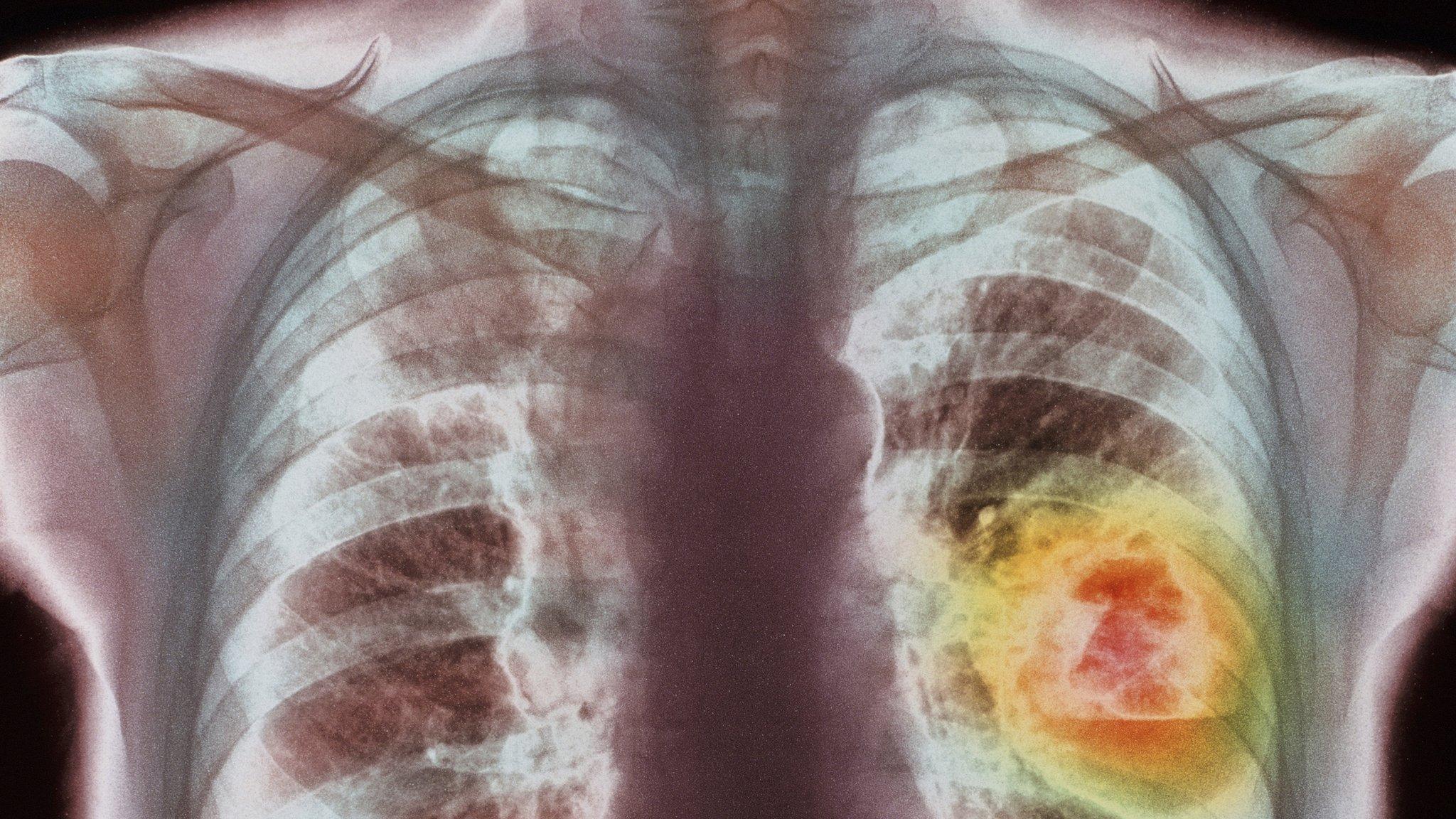Manchester Christie Hospital lung cancer patient 'saved' in new clinical trial
- Published
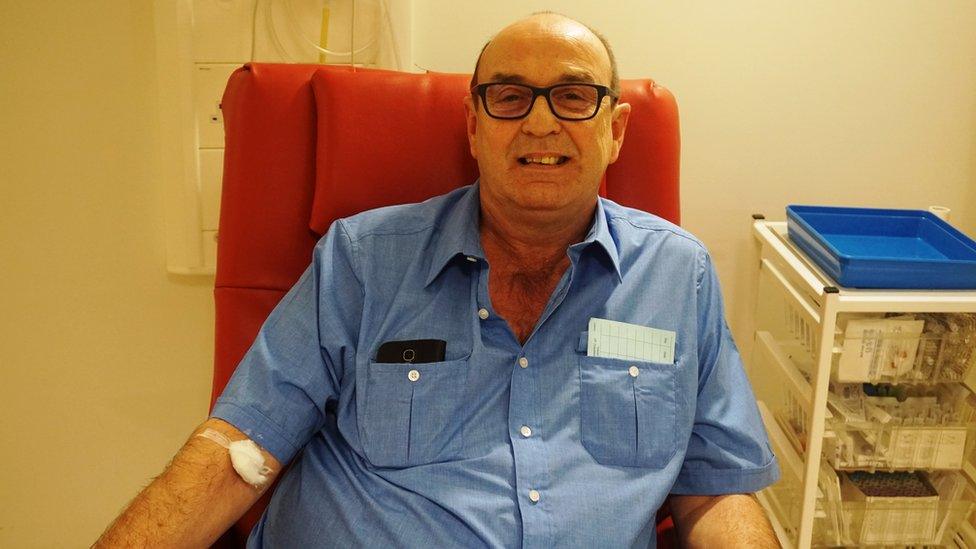
Bob Berry says he "feels great" after the pioneering trial
A lung cancer patient given 18 months to live has been left with no trace of the disease after a new clinical trial.
Bob Berry, 60, from Stockport was one of only three to take part in the trial at Manchester's Christie Hospital.
Andrew Hughes, who ran the trial, said a combination of two drugs were used to first attack the cancer and then help boost the body's immune system.
"Lucky is an understatement - I was in the right place at the right time," said Mr Berry. "I feel great now."
Three years ago, after spotting the cancer during an unrelated X-ray, doctors only gave him 12-18 months to live.
"It was really hard - a real shock to my family and friends," said Mr Berry of his original prognosis.
'Remarkable'
After two rounds of chemotherapy and one of radiotherapy, he was referred for the trial at the specialist cancer hospital.
He received two new drugs which have not yet been named.
"As of his last scan, we're not able to detect any lung cancer at all," said Prof Hughes, chair in experimental cancer medicine at The Christie.
"It is a remarkable response - actually only about one in five people with immuno-therapies get the response akin to Bob's."
While the other two patients in the hospital's trial have responded to the treatment, they have not done so to the extent that Mr Berry has.
Mr Hughes acknowledged his good fortune: "You think 'that's it, you don't stand a chance', but drugs have come on so much these last few years, it's unbelievable - hence why I'm still here now."
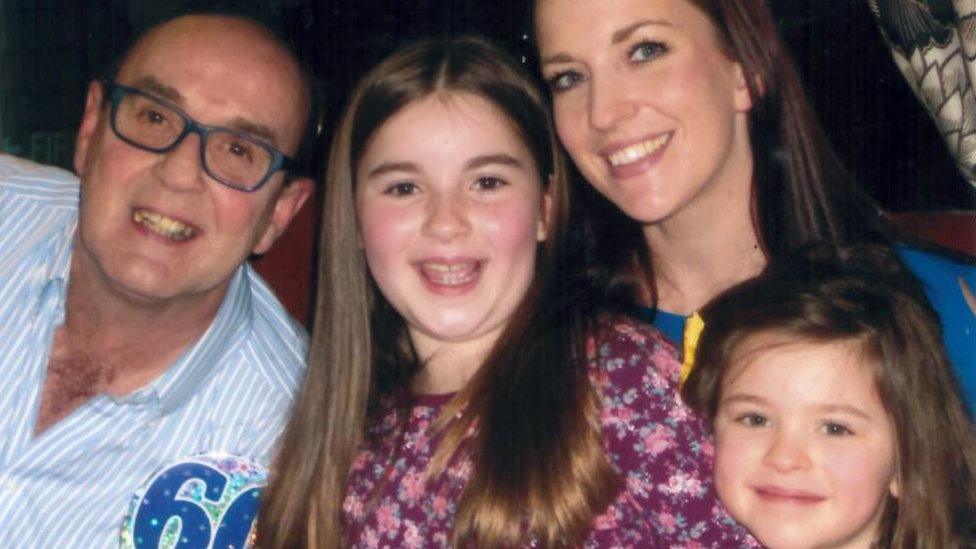
Mr Berry, who turned 60 last year, is returning to the hospital each week for a check-up
Prof Hughes said many cancers grow "simply because the immune system fails to pick them up as foreign material" - they hide behind an "invisibility cloak".
"The first drug damages the very essence of the cancer's life - its DNA - and as the cancer is dying we hit it with a second drug that takes the 'invisibility cloak' away from the cancer so that the immune system can recognise it," he added.
He said very few people get on to this kind of trial, with only about three in every 10 people referred to The Christie by their GP actually taking part.
Only 12 people have taken part in the trial globally.
The Christie is currently running about 600 cancer trials, of which 50 are "first in human" experiments.
"Every cancer drug begins with a 'Bob' story," said Prof Hughes, "and then a larger trial is done".
It typically takes "three to seven years" to bring successful "first in human" trials into widespread use, he added.
The other two patients in the hospital's trial have responded to the treatment, but not to the degree Mr Berry has.
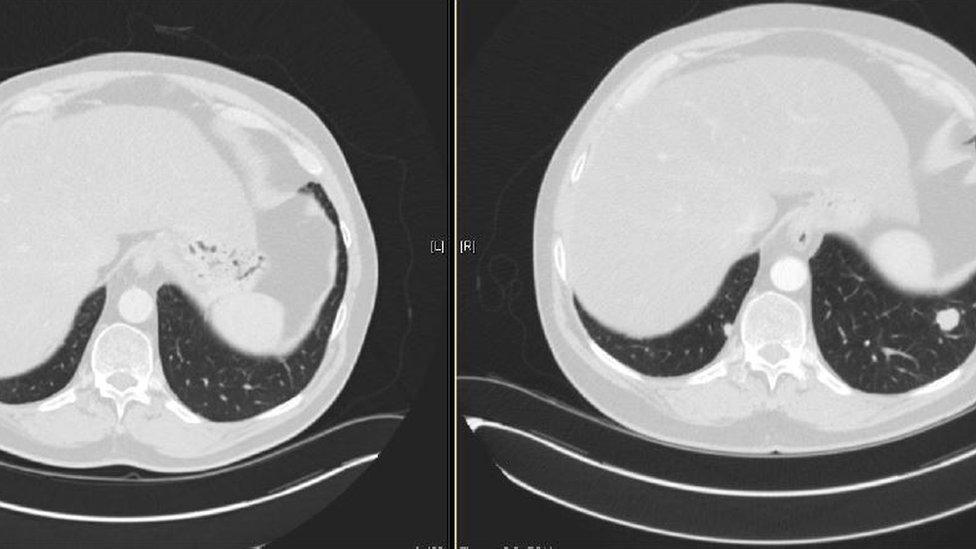
Before (right) and after (left) scans of Mr Berry’s lung show the cancer (the raised white dot) has been eradicated
- Published25 November 2016
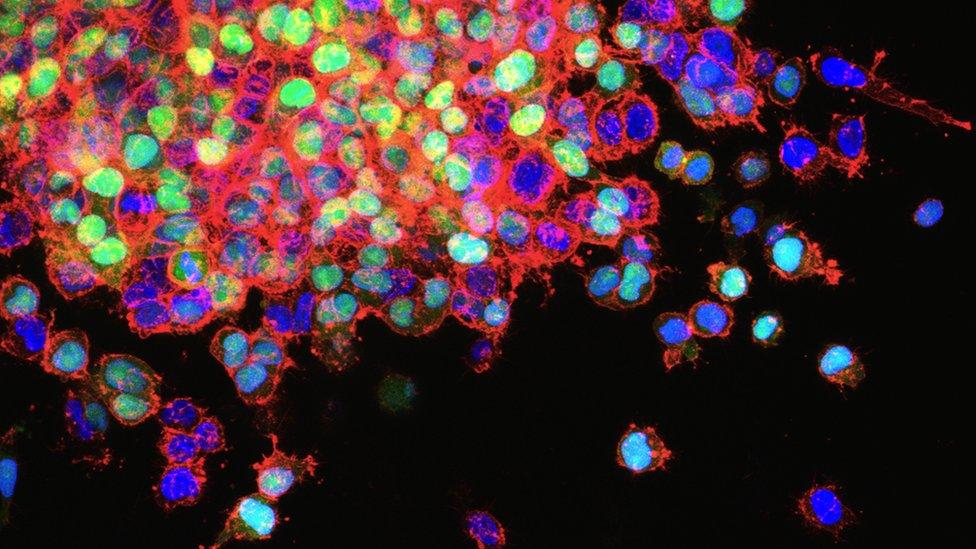
- Published3 November 2016
- Published9 October 2016

- Published30 September 2016
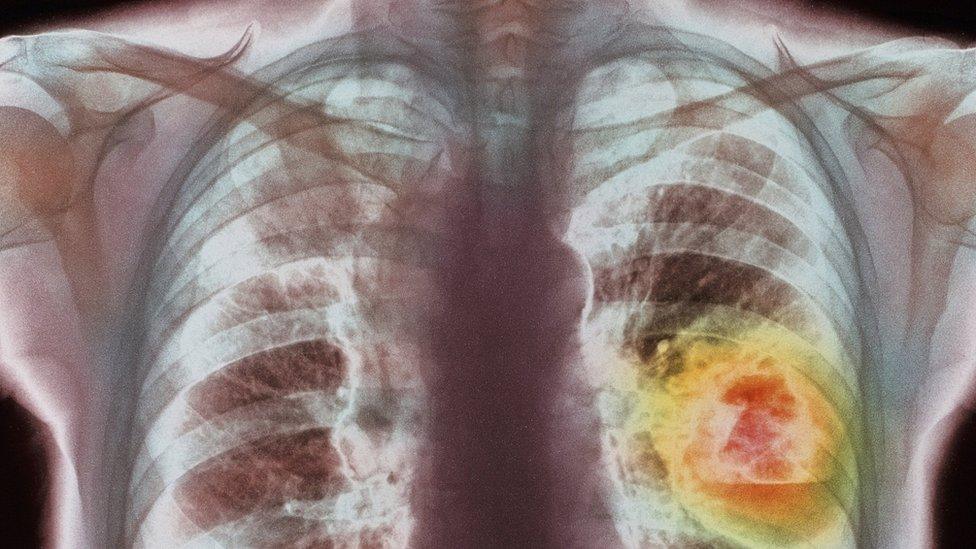
- Published30 May 2015
